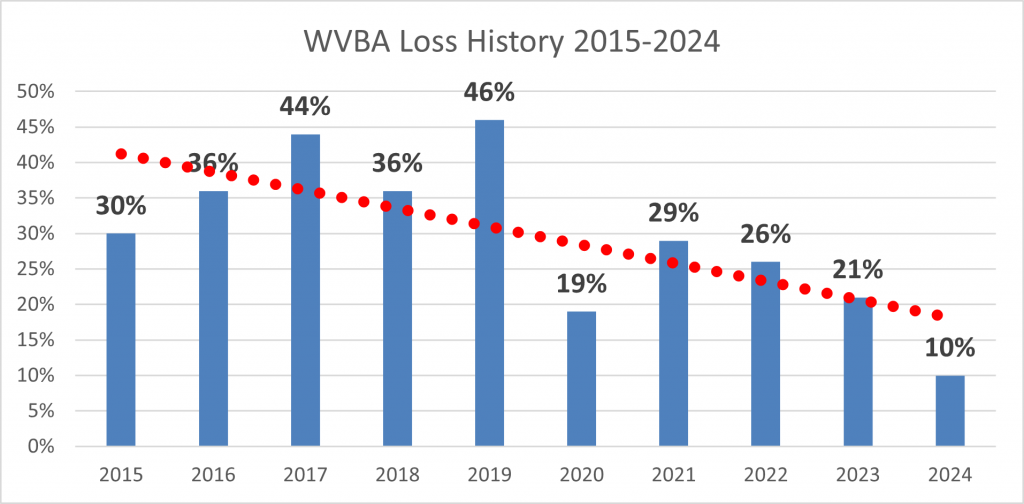The pnwhoneybeesurvey is OPEN. The members of WVBA have been especially supportive of this annual survey of Oregon and Washington backyard beekeepers. Please participate before May 1st @ https://pnwhoneybeesurvey.com/survey/ . This will be the 16th year. I have modified the survey so you can simply enter survival/loss this past winter and Fast Track avoiding responding to questions on management if you wish.
For Oregon backyarders, the overall trend is essentially flat over the past 14 years with average losses at 38% overwinter. it has increased slightly the past 14 years for commercially managed colonies to 22%. WVBA losses have been lower the last four years with the last winter losses well below other years; the WVBA 10 year average loss is 30%, lower than statewide average of 38%. The loss trend the past 10 years is more strongly downward than statewide (see Chart). The latest WVBA report is at: (https://pnwhoneybeesurvey.com/) Click on survey reports under individual club reports.
I am sure most of you are aware of very high levels of losses being reported by commercial beekeepers the past two winters. According to a survey from Auburn University, overall annual losses for U.S. beekeepers in 2022-23 was 55.1% (37.3% overwintering loss). A preliminary survey by Project Apis m (PAm) of losses this current year, June 2024 to February 2025 was even higher – 62% for 792 commercial beekeepers. Losses of (fewer individual) sideliner and hobbyist beekeeper during the same period was 50% and 54% respectively. Oregon beekeepers, responding to the survey lost between 50,000 and 100,000 colonies.
We do not know the reason(s) for the heavy losses the past two seasons. Samples have been taken and are being analyzed by USDA and Cornell University. There are several theories being floated for possible reasons for the heavy losses. Environmental conditions (colonies stressed in the fall and too few adults reared to pass the winter season), lack of “clean” forage, a new virus or a change in DWV virus virulence and management errors in failure to adequately control varroa have been mentioned as possible causative factors. We need await sample analyses and hope a culprit is identified.
NOTE: A report of an earlier loss of Florida beekeepers investigated by the USDA will soon be published. Neonicotinoid pesticides will apparently be implicated in that incidence. In Oregon a proposed regulation before the Oregon legislature (House Bill 2679) to move neonicotinoid pesticides to restricted use available only by certified pesticide applicators seems to be in “trouble”. Oregon is the 13th state to seek to restrict bee-toxic neonicotinoids in an effort to restore our native and managed pollinators.

